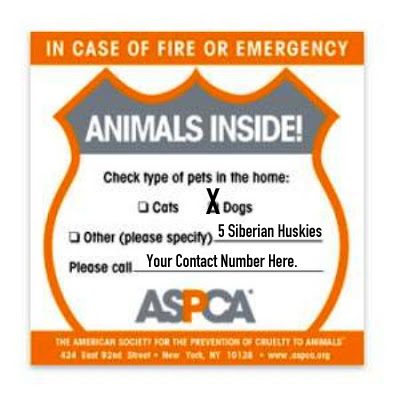What Do I Do About My Epi-Dog's Medications With the Fall Time Change?
November
marks Epilepsy Awareness Month (#NEAM) and it also marks the end to Daylight Saving
Time, a time for clocks to "fall back" in many areas the first Sunday in November at 2
AM EST.
Again, I am asked this question a lot, and do see often asked in dog epilepsy groups, is, "What do I do
about my dog's medication when the clocks go back?"
 If
your Epi-dog (dog with Epilepsy) is on specifically timed medications,
same as in the spring, you will want to adjust his schedule a few days
ahead of time, or at least for the first day of the new time change,
stagger the dosage times.
If
your Epi-dog (dog with Epilepsy) is on specifically timed medications,
same as in the spring, you will want to adjust his schedule a few days
ahead of time, or at least for the first day of the new time change,
stagger the dosage times. My
FiveSibes Epi-tip is again actually a simple formula for helping adjust your
Epi-dog's medication doses to keep it as close to "normal" as
possible.
FOR EXAMPLE: If your pet typically gets his medications at 7 AM and 7 PM, for the first day of end of DST, give the AM dosage at the new fall-back time of 6:30 (true time would be 7:30, a half hour later than usual), and give the 7 PM dosage at 6:30 (true time would be 7:30). That way, while their internal clock says it's a bit late, their system can adjust to the "new" time and won't be going too long without the meds, thus risk upsetting the internal balance and possibly triggering a seizure.
I
always preferred to ease Gibson into the time change for a day, and keep those
seizure meds as close to on-time as possible. *This is the method I used with Gibson. It may not be right for everyone's pet,
so please check with your vet. You may need to begin your pet's adjustment a few days earlier.
You know your Epi-dog best. Some pets may not need to adjust. Others need a
slower and longer adjustment period, so I always suggest take a few days prior to the
time change to initiate it. Why do this? For an Epi-dog, specifically
timed medications is an absolute must. Sometimes even the slightest
change can set their system a-kilter and become a trigger. That's why a simple formula works the best.
Neurology Veterinarian Advice
⬇️ ⬇️ ⬇️ ⬇️ ⬇️
Time Change adjustments (Fall or Spring) for dogs with Epilepsy is a REAL thing. Epilepsy is NOT a one-size-fits all with every Epi-dog. Some dogs (not all) with seizures CAN BE affected by delays in medication.
"You
are correct in saying that seizure management is
not a one-size-fits-all with every dog. Some dogs are exquisitely
sensitive to the timing of their medications - and can have a seizure if
the medication is delayed by an hour, while other dogs can
tolerate fluctuations in their medication administration without
negative consequences. The medications that are being
administered probably also factor in - for example a drug like Keppra
that is metabolized quickly in the body will be more likely to be
affected to a delay in administration compared to other drugs such as
phenobarbital or potassium bromide. I tell my clients that treatment of
epilepsy requires an individualized approach, and it is important to
find what works well for you and your dog - rather than what works for
others. So for dogs that are very sensitive to timing
of drug administration, I think a gradual adjustment to the time change is wise. For other dogs, this may not be necessary."
~✰~
~Dr. Karen R. Muñana, DVM, MS, DACVIM (Neurology)
Companion Animal Epilepsy Research Labe
North Carolina State University-College of Veterinary Medicine
North Carolina State University-College of Veterinary Medicine
While we may look forward to an “extra” hour of sleep, hopefully,
the time change will not affect your Epi-dog, other than him/her really wanting their food!
“An extra yawn
one morning in the springtime, an extra snooze one night in the autumn
is all that we ask in return for dazzling gifts. We borrow an hour one
night in (spring); we pay it back with golden interest...months later.”
~Winston Churchill
(Do again in Spring)
- BATTERY CHECK: Replace batteries and check connections for pet cams, room/baby monitors, and smoke, fire, and carbon monoxide detectors.
- FIRE EXTINGUISHERS: Check to see when the last time your fire extinguishers were checked and verified. Be sure they are working properly and in a place where all family members will see/find them.
- PET ALERT WINDOW CLINGS: Be sure pet window clings are visible on the outside so fire fighters can easily see, and be sure they are not faded from time and sun. If you need a replacement, you can Google "Pet Window Clings," or visit ASPCA for a FREE safety pack, that includes a pet safety window cling, their Poison Control info on a magnet to keep handy.
- PET ID TAGS: Check
all pet tags to be sure they are all up to date with current info. Have
a purple ID tag made that says "Epileptic" with your dog's name, your
contact number, and "Needs Medication."
- MICROCHIP: Check your pet’s microchip information and be sure it has been updated with any new info, such as a new address, new vet, new phone numbers, etc. Be sure to update info with not only the microchip company, but also your vet’s office. If your pet is not yet mircrochipped—please have it done just in case your pet gets loose, lost, or is stolen.
- HEARTWORM/FLEA/TICK PREVENTATIVES: If
your pet is on Heartworm and flea/tick preventative, and you do not
do it all year long, be
sure to visit your vet, have your pet tested for Heartworm and
parasites. I kept my FiveSibes on preventatives all year long, not just Spring/Summer as we had some very warm days in the Autumn/Winter, plus, ticks are a plenty in leaf piles! *NOTE: Some preventatives may trigger seizures. Talk with
your vet about alternative products. *NOTE: I did not have an issue with Gibson with
traditional heartworm and flea/tick meds, however, I did have to switch
two of of my other Huskies; Harley after she began having age-onset
seizures at 12 and Wolfie when he began developing some growths on his
body. You can read all about a natural product I loved and wrote about
it HERE.
- PET FIRST AID KIT: Review
your pet's emergency/First Aid Kit to be sure things are
up-to-date. Replace anything that has expired. With the arrival of
bees, it's a good idea to check with your vet about including Benadryl® in
the kit and what the proper dosage for your pet would be. To see what we had in our First Aid Kit, visit my post HERE.
- BEDDING: Take the time to check out all the spring/summer bedding and give them a good cleaning or replacement. Buying new beds? Why not wash up and mend the old ones and see if your local dog shelter could use them.
- EXPIRATION DATES: Check all pet meds, vitamins, supplements, food, and care products for expiration dates (and be sure they are kept out of reach of furkids).
- EMERGENCY CONTACTS: Update all vet and emergency contacts, including Poison Control, in your home and in your cell phones. Do you have the Pet Poison Helpline Phone App? How about the Animal Poison info by ASPCA? Check them out!
~ * ~ * ~ * ~ *~
(Click on image)
#ForeverFiveSibes
FOLLOW US ON FACEBOOK:
FOLLOW US ON INSTAGRAM:




.png)
















I never thought about that issue, I hope they do away with the time change….
ReplyDeleteThat has to be a bit scary for such an important med.
ReplyDeleteYou always have such good info! It had not occurred to me to think about medication timing in regard to the time changes.
ReplyDelete